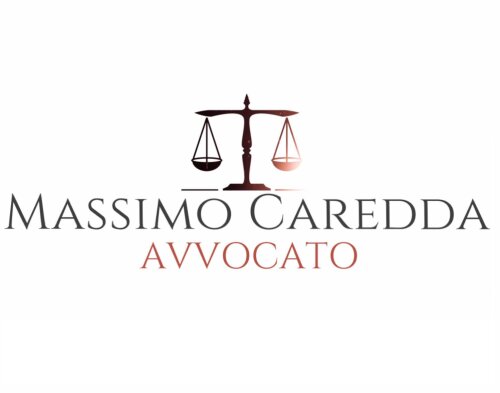Best Faith-Based Law Lawyers in Cagliari
Share your needs with us, get contacted by law firms.
Free. Takes 2 min.
List of the best lawyers in Cagliari, Italy
About Faith-Based Law in Cagliari, Italy
Faith-Based Law in Cagliari relates to the intersection of religious principles and the Italian legal system as practiced within the city and region of Sardinia. Italy is a secular state, but it recognizes religious freedom and accommodates certain aspects of faith in its legal framework, especially regarding personal status, religious associations, places of worship, and family law issues where religious norms may play a role. In Cagliari, with its multicultural community and longstanding traditions, religious law often arises in matters for Catholic, Islamic, Jewish, and Protestant communities, centering around marriage, divorce, burial rights, and the management of religious organizations.
Why You May Need a Lawyer
Legal issues that involve faith-based considerations can be complex due to the interplay between state, local, and religious laws. Individuals and organizations in Cagliari may require legal counsel in a range of situations, such as:
- Registering or incorporating religious associations or charities
- Navigating marriage, divorce, or inheritance aligned with religious customs
- Securing permits for religious buildings or places of worship
- Protection of religious freedom and rights at work or in public
- Resolving disputes over religious property or leadership succession
- Issues related to religious education in public or private schools
- Ensuring compliance with Italian and EU laws while respecting religious practices
A lawyer versed in faith-based law can help you protect your rights, advocate for your interests, and find solutions compatible with both your beliefs and the law.
Local Laws Overview
In Cagliari, as in the rest of Italy, the Constitution guarantees freedom of religion and belief. Certain religious communities have “Intese” (agreements) with the Italian government that affect their legal recognition and the handling of personal status issues. Faith-based considerations intersect with areas such as:
- Religious Associations: Legal status, property ownership, and operation rules depend on both national law and local implementation.
- Marriage and Family Law: Civil marriage is required for legal recognition; however, some religious marriages have ancillary legal effects through concordats (e.g., Catholic Church).
- Burial Rights: Local regulations impact religious burial practices and cemetery use.
- Freedom of Worship: Permits and zoning may affect places of worship. City-level authorities in Cagliari manage these according to the law but must respect constitutional protections.
- Religious Symbols and Dress: There are limits in public administration or education, but courts recognize a balance between public order and religious freedom.
Rome remains the legislative center, but municipality decisions in Cagliari can impact how faith-based activities are managed, always subject to constitutional guarantees of religious freedom.
Frequently Asked Questions
What is Faith-Based Law and how does it apply in Cagliari?
Faith-Based Law refers to legal issues involving religious beliefs or practices, including recognition of religious institutions, religious observances, and faith-influenced personal matters. In Cagliari, it mostly concerns how secular law accommodates religious traditions within Italian legal limits.
Are religious marriages legally recognized in Cagliari?
Only civil marriages are legally recognized for state purposes. However, Catholic marriages may have civil effect if registered; other faith marriages may require a separate civil marriage.
Can religious associations own property in Cagliari?
Yes, religious associations recognized by the state can own property, but they must comply with local registration and use requirements.
What steps are needed to register a religious association?
Associations need to draft a statute compliant with Italian law, register with the Prefecture, and meet requirements for transparency and non-profit activities.
Can students in Cagliari’s schools observe religious holidays?
Schools generally accommodate absences for major religious holidays, but these need to be discussed with school authorities in advance.
Are faith-based dietary rules respected in public institutions?
Public schools and hospitals often provide alternative meal options for major dietary restrictions (e.g., halal, kosher) upon request, though there may be limits based on resources.
What protections exist for religious dress?
Italian law protects religious dress, but there are restrictions in some public roles or educational settings for security or neutrality reasons.
How do inheritance laws affect religious bequests?
Italian inheritance law predominates, but religious traditions can be reflected in one's will as long as they fit within statutory constraints (e.g., reserved shares for heirs).
What are typical disputes handled by faith-based lawyers?
Disputes may involve religious property, leadership succession, employment discrimination over religion, or conflicts between religious and secular law.
Where can I find lawyers experienced in Faith-Based Law in Cagliari?
Cagliari has lawyers specializing in religious law, often listed in local bar directories. Religious communities and legal advice centers may also provide referrals.
Additional Resources
If you need more information or help navigating faith-based law in Cagliari, consider these resources:
- Ordine degli Avvocati di Cagliari (Cagliari Bar Association): Offers directories of local lawyers, including those specialized in religious and family law.
- Pretura e Tribunale di Cagliari (Local Civil Courts): For procedural guidance on legal matters involving religion.
- Ministero dell’Interno (Italian Ministry of the Interior): Handles recognition of religious groups and associations.
- Comune di Cagliari (Municipality Offices): For local regulations on religious buildings, events, and cemeteries.
- Local Religious Councils or Community Organizations: Many have legal advisors or can offer supportive guidance for faith-related legal issues.
Next Steps
If you are facing a legal matter related to faith-based law in Cagliari, consider the following steps:
- Define your issue and gather documentation (e.g., association statutes, marriage documents, correspondence).
- Consult your religious community for internal advice or referral to legal experts familiar with your faith tradition.
- Contact the Cagliari Bar Association or use local legal aid services to identify an experienced faith-based lawyer.
- Arrange a consultation to discuss your case, possible routes, and protections under both Italian and local law.
- If the matter involves public institutions, engage with relevant authorities (e.g., municipality, school offices) to clarify requirements and options.
Working with a qualified lawyer will help you navigate these issues with respect for both your rights and beliefs, ensuring solutions that are both lawful and respectful of faith traditions.
Lawzana helps you find the best lawyers and law firms in Cagliari through a curated and pre-screened list of qualified legal professionals. Our platform offers rankings and detailed profiles of attorneys and law firms, allowing you to compare based on practice areas, including Faith-Based Law, experience, and client feedback.
Each profile includes a description of the firm's areas of practice, client reviews, team members and partners, year of establishment, spoken languages, office locations, contact information, social media presence, and any published articles or resources. Most firms on our platform speak English and are experienced in both local and international legal matters.
Get a quote from top-rated law firms in Cagliari, Italy — quickly, securely, and without unnecessary hassle.
Disclaimer:
The information provided on this page is for general informational purposes only and does not constitute legal advice. While we strive to ensure the accuracy and relevance of the content, legal information may change over time, and interpretations of the law can vary. You should always consult with a qualified legal professional for advice specific to your situation.
We disclaim all liability for actions taken or not taken based on the content of this page. If you believe any information is incorrect or outdated, please contact us, and we will review and update it where appropriate.










